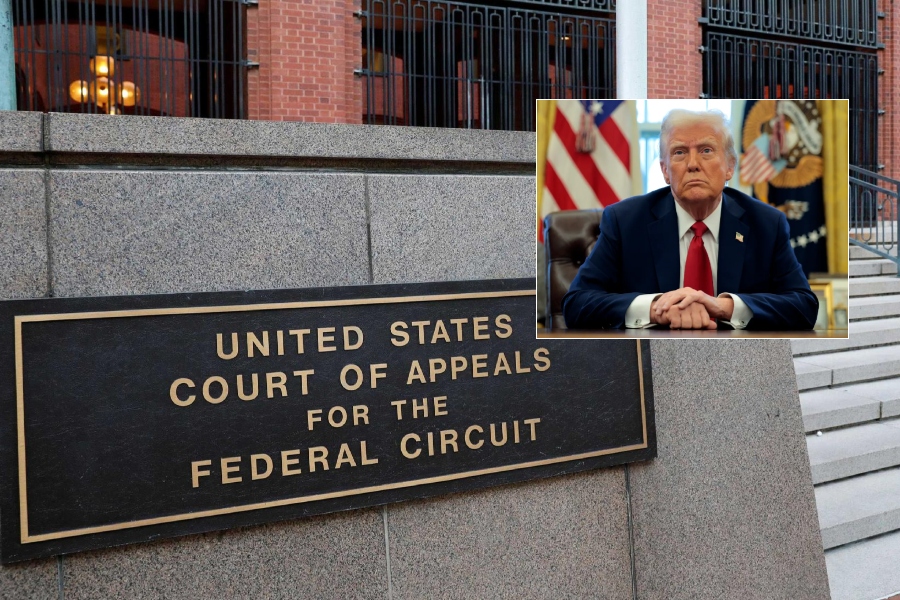An appeals court seemed skeptical of President Donald Trump’s tariffs after oral argument on July 31, as multiple judges questioned whether a decades-old law Trump invoked had provided him the authority he said it did.
Oral arguments came months after the U.S. Court of International Trade held in May that Trump’s tariffs were inconsistent with the International Economic Emergency Powers Act, which allows presidents to regulate imports in times of emergency. Whether that regulation of imports includes tariffs was the subject of considerable debate.
Article I of the Constitution grants Congress the power to levy tariffs, but the legislative branch may delegate that authority through federal law.
Arguing that the law granted Trump that authority, the administration appealed the May decision to the U.S. Court of Appeals for the Federal Circuit, which temporarily allowed Trump’s tariffs to proceed.
The July 31 hearing focused on whether the appeals court should uphold the trade court’s block on Trump’s actions. An 11-judge panel heard arguments from the Justice Department and attorneys representing a group of states, and a group of businesses, that sued the Trump administration.
The judges peppered both sides with questions, but seemed especially critical of arguments from Justice Department attorney Brett Shumate, who was repeatedly interrupted by various judges. Many of their questions pointed to doubts about Trump’s argument that the law allowed him to impose a sweeping set of tariffs, but some also asked about the president’s declaration of an emergency induced by trade deficits.
One of the judges, for example, noted that the law didn’t use the word tariffs. Beyond allowing tariffs, the administration also faced questions indicating skepticism that Congress had allowed Trump to alter tariffs in such a broad way.
Trump had imposed targeted tariffs on Canada, Mexico, and China, but also a broader set of tariffs on dozens of countries.
According to the states and businesses, trade deficits were a longstanding phenomenon for the United States and didn’t constitute the type of emergency that allowed Trump to take action under the law.
In one of his orders from April, Trump said that “large and persistent annual U.S. goods trade deficits have led to the hollowing out of our manufacturing base; inhibited our ability to scale advanced domestic manufacturing capacity; undermined critical supply chains; and rendered our defense-industrial base dependent on foreign adversaries.”
He added that “the large, persistent annual U.S. goods trade deficits, and the concomitant loss of industrial capacity, have compromised military readiness; this vulnerability can only be redressed through swift corrective action to rebalance the flow of imports into the United States.”
Reading from a portion of Trump’s order, one of the judges said she was concerned about compromised military readiness.
Share your thoughts by scrolling down to leave a comment.













